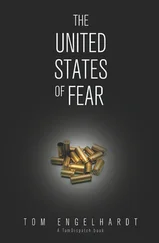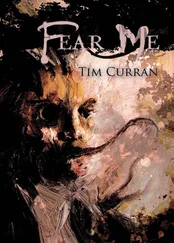At length, a man went around and dimmed the lamps at the perimeter of the tent, and then turned up the lamps along the front of the stage platform so that they cast light there, and the audience grew quieter.
A figure emerged from behind the canvas curtain at the rear of the stage, the footlights casting his looming shadow in triplicate on the canvas behind him. He seemed at least eight feet tall, an effect heightened by his satin trousers, which had vertical stripes that ran from his waist to his cuffs and glistened in the light, and a top hat that had met with some accident and was cocked in mid-rise. His shirt, also of some bright satin stuff, had puffy sleeves that billowed and swung when he gestured. His face was black, black as tar, making his eyes and mouth stand out in an uncannily exaggerated manner so that he resembled either a personable devil or a threatening angel. And he carried a musical instrument I had not seen before. It had strings, and the body was round, resembling a drum head.
This was Joel Walker Sweeney, a figure of legend now but at the time a mysterious apparition portending one knew not what. I believed him to be an actual Negro, and I gazed at him in awe.
Stepping to the front of the stage and grinning like a demon, he shouted, “ Good ebening, good ebening, everybody! ” and began playing his banjo. It was a jumping, twitchy tune — in fact it was no tune at all, but only a series of repeated rhythmic arabesques. As he played, he made some introductory remarks, quite at his leisure and unrelated to what his banjo was doing.
“ I hopes you is fine dis ebening ,” he said, as the banjo spun out its commentary beneath his voice. His dialect was strange and jarring to the ear — English, certainly, yet some rogue variant that forced one to pay attention in order to discern the sense. “ I has come from Old Virginny, a far piece for sho’. I got on board a locomotive, but dey had only built three mile of track so it didn’t take me very far. Den I climbed on a packet boat on de Chesapeake, but don’t you know dat boat sank. I swam ashore and found me an old mule to ride, but after a ways that mule took sick and died, and so I walked the rest of de way and here I is. At least I kep’ my banjer wit’ me and I may as well play a few songs for you good people tonight .”
How to convey the atmosphere that settled over the tent? The swish his satin sleeves emitted as he switched and swung along the stage, the way his movements were timed and echoed the phrases of his songs and the banjo. . He played at least six songs solo — I remember “Lucy Long,” “Jump Jim Crow,” and “Jim Along Josey”—before being joined by another fellow who played the bones and danced a marvelous jig dance. The songs beguiled me; they were full of improbable characters, tragic courtships, bullfrogs dressed like soldiers, talking birds. The sound of the banjo — part drum, part lute — set up an irresistible forward momentum, yet it constantly subverted expectation. Where you were led to expect a note, there would be an emphatic absence; where you had been led to expect rest, you would be pushed forward into the next episode. The banjo constantly insisted: “ And, and, and, and, and . .” Always more to come, never the possibility foreclosed, except playfully. I went into a kind of trance, as if he had cast a spell upon me. . the shadows behind him, the proximity of all the other souls, the warmth of the evening. . I was transported, lifted above the world and its tedium, as if a curtain had been pulled back and I had been told that all glory could be mine.
He played for what seemed both an eternity and the most fleeting of moments. During a spell of especially riotous applause, Sweeney left the stage, and I sensed a shift of some sort in the audience response. I returned to myself and looked around and realized that the performance was, in fact, concluded. People were getting up from their seats and making their way outside. We were being evicted from the circle of wonder and possibility and herded back into the lockstep of ordinary time.
In a kind of panic, forgetting about my brothers, and their consorts, and the entire material world for that matter, I struggled out from between the two profuse farmers, who were still whistling and bouncing in their places, made my way to the tent’s edge, and slipped through one of the seams and out under the dark sky. My thought was to run to the rear and find this genius and say. . I knew not what. But at the least I needed to know that this was not some dream I had conjured, that what I had seen existed in fact.
I ran alongside the tent as the applause abated, ducking the rope stays, and it was not long before I saw a flap which I took, correctly, to be the rear entrance to the stage. I carefully pulled it to one side, and there inside I saw the magic figure, sans top hat now, and another — the one who had done the jig dance. The great man was laughing over something, and he held a rag in his hand, and as I watched he passed it over his face and a large patch of his cheek changed color. He appeared to be wiping the very color off his face. After several swipes I realized that this was in fact a white man who had for some reason blackened himself for the performance. I was astonished. As he wiped, he spoke to the other.
“You came out of that turnaround very handily,” he said. “I thought we were going to have to begin again, but you saved the day.”
“Yes, well,” the other said, wiping off his own face, “next time give me some signal that you’re going to switch the rhythm. I nearly broke my neck trying to follow that.”
“Don’t give me orders, you sodomite,” the tall man said, grinning genially and wiping off the last of the blacking. “I am captain of this ship.”
“You are a freak and nothing more, a half-human fit for a circus freak tent”—the genius laughed at this—“half man and half jackass. .”
“Only half jackass!” the genius said. “You have the full pedigree. Did you see the tart in the blue frock, by the way?”
“It’s why I’m making haste.”
I was shocked to hear them speak in this manner. I listened until, ambushed by the dust in the air, I sneezed violently. On the instant they both saw me, and the tall one focused on me, and our eyes met. I was no longer looking at an Ethiopian apparition, but at a white man, still in outlandish garb, and I thought he regarded me tenderly for a moment. The other watched both of us. I thought the tall one was about to speak to me; perhaps he would invite me in, take me away with them to wherever people did the things they did. He was half-smiling at me, steadily, as he reached over to a table, picked up something and, with a hard flick of his wrist, threw it at me. I ducked out of the way under the tent flap just in time to hear the object strike the canvas with a thud.
As if the devil himself were on my tail, I ran as quickly as I could around the tent toward where the last of the audience was leaving. My brother Duncan swatted me on the side of the head for giving them a scare that I had gotten lost, and they threw me in the back of the cart for the long, dark ride home.
From that point forward I was all but useless at the farm. I was convinced that some mistake had been made in the world’s scheme, as if bills of lading had been mixed up and an order meant for one place had been set down in another. There was a world of color and song and movement, and it was elsewhere. I despised the routine, despised being at the mercy of my brothers’ moods and orders. Count these and stack them and then count them again. All I could think of was escape.
Then one day, perhaps six months later, perhaps a year, a circus came through, set up very nearby, and stayed for a week. One could hear the riotous goings-on from half a mile away. They had contortionists and strong men and women aerialists and beribboned horses and a tired zebra. There was a small brass band ensemble and, very importantly, a performer on the banjo, Corbett by name, who blacked his face and sang while he played. There were also a number of sweepers and riggers and gatekeepers and such, and when the entire encampment departed on the eighth day, I was among their number.
Читать дальше










